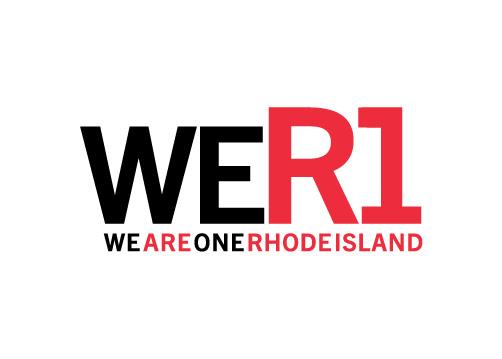RI Delegation Announces $724K EDA Grant for 401 Tech Bridge to Support Economic Recovery

Grant from CARES Act-created challenge will boost local Blue Economy sector
Providence, RI – U.S. Senators Jack Reed and Sheldon Whitehouse and Congressmen Jim Langevin and David Cicilline today announced that 401 Tech Bridge has received $724,674 from the Economic Development Administration’s (EDA) Scaling Pandemic Resilience Through Innovation and Technology (SPRINT) Challenge. The SPRINT Challenge was created last year by the CARES Act with the aim of harnessing America’s entrepreneurial talents to address the economic and health risks caused by the coronavirus pandemic.
“This pandemic has wrought so much havoc and upheaval, but it has also demonstrated possibilities for changes to the status quo. And it could lead to growth in innovation and new opportunities for startup creation. This federal funding will help provide 401 Tech Bridge and its partners with new startup development resources to launch new ideas, business opportunities, and job growth here in Rhode Island,” said Senator Reed.
“401 Tech Bridge is well-positioned to support promising companies that will help power the post-pandemic economic recovery,” said Whitehouse, who has for years championed 401 Tech Bridge and its partners in the composites, textiles, and Blue Economy sectors. “With this federal grant, 401 Tech Bridge will focus on accelerating job growth in the Blue Economy sector as the pandemic starts to wind down and our economy gets going again.”
“401 Tech Bridge has been a valuable partner for Rhode Island businesses, and this grant will allow them to continue their work promoting innovation, entrepreneurship, and economic growth,” said Congressman Langevin. “This funding will help address the needs of local businesses most affected by this pandemic, while investing in the Blue Economy and bringing good jobs to the Ocean State.”
“401 Tech Bridge will be a leader in shaping the composites industry here in Rhode Island, and around the country,” Congressman Cicilline said. “This grant will help build on the collaboration among government, academic, and industry partners to expand the Blue Tech sector here in Rhode Island, which provides jobs with wages that are higher than average, putting our economy back on track.”
401 Tech Bridge, a nonprofit economic development organization, launched in 2019 to support Rhode Island’s promising textiles, composites, and undersea technology industries by facilitating industry connections, research, and workforce development. 401 Tech Bridge’s winning proposal builds on existing collaborations among government, defense, academia, and industry partners to drive economic growth in the Blue Economy sector and accelerate economic recovery from the pandemic.
“Rhowill be able to use these funds to help startupsde Island is a leader in the blue economy and this sector is primed for growth as we climb out of the COVID-19 pandemic. I’m thrilled that 401 Tech Bridge launch and grow and strengthen the blue economy supply chain while creating jobs in the process,” said Governor Dan McKee. “Thank you to the Biden Administration for recognizing 401 Tech Bridge with this EDA Sprint award and to our Congressional Delegation for their leadership and advocacy in securing CARES Act funding for Rhode Island.”
401 Tech Bridge plans to use the grant funding to:
- Jumpstart new companies in partnership with MassChallenge, creating a Blue Tech Accelerator and a fellowship program to help startups launch and grow;
- Leverage a partner network that includes the Naval X Northeast Tech Bridge, Polaris MEP and the NIST Manufacturing Extension Partnership National Network, the University of Rhode Island and other post-secondary institutions in the region, government agencies and advanced materials industry groups to identify funding and connect companies to business opportunities in the Blue Tech sector; and
- Execute programs that bring startups to scale, and strengthen the Blue Tech supply chain.
“As the region recovers from the economic shocks caused by the pandemic, it’s critical that we leverage ocean innovation to enable strong economic and jobs growth by encouraging research that will affect our future success of our region,” said Christian Cowan, COO of URIRF and Executive Director of 401 Tech Bridge. “401 Tech Bridge is thrilled to be awarded this EDA SPRINT grant to help companies identify commercial and dual-use applications for their technology. This funding will create jobs through opportunities for start-ups and existing businesses to leverage our state’s universities to develop their technology, connect to opportunities within the blue economy, including offshore wind and defense, and access job programs and other services to grow and sustain their businesses.”
“Rhode Island is home to companies that develop innovative products and applications for use in the exploration and enjoyment of our coastline,” said Mary Johnson, Manager at 401 Tech Bridge. “We are excited to be awarded this EDA SPRINT
grant and look forward to collaborating with MassChallenge to support the Blue Tech accelerator program, and with the Navy, academia, and industry to help innovators bring solutions to market, creating jobs and aiding the regional economic recovery.”
“MassChallenge is thrilled to partner with 401 Tech Bridge to execute the programs funded by the EDA SPRINT challenge award,” said Hope Hopkins, Managing Director, Early Stage, New England at MassChallenge. “This funding provides meaningful opportunities for the greater Blue Tech consortium in Rhode Island and will help MassChallenge expand the Blue Tech pilot we ran last year in support of early-stage startups focused on ocean innovation. Blue Tech is a key industry cluster in RI and one that will surely drive economic growth, job creation and public benefit, particularly as we emerge into a post-pandemic world and commit ourselves to economic recovery.”
401 Tech Bridge was one of 44 awardees selected from a pool of more than 200 applicants. The awardees are located in 25 states and Puerto Rico and will leverage approximately $9 million in additional matching funds from various private and public sector sources.
